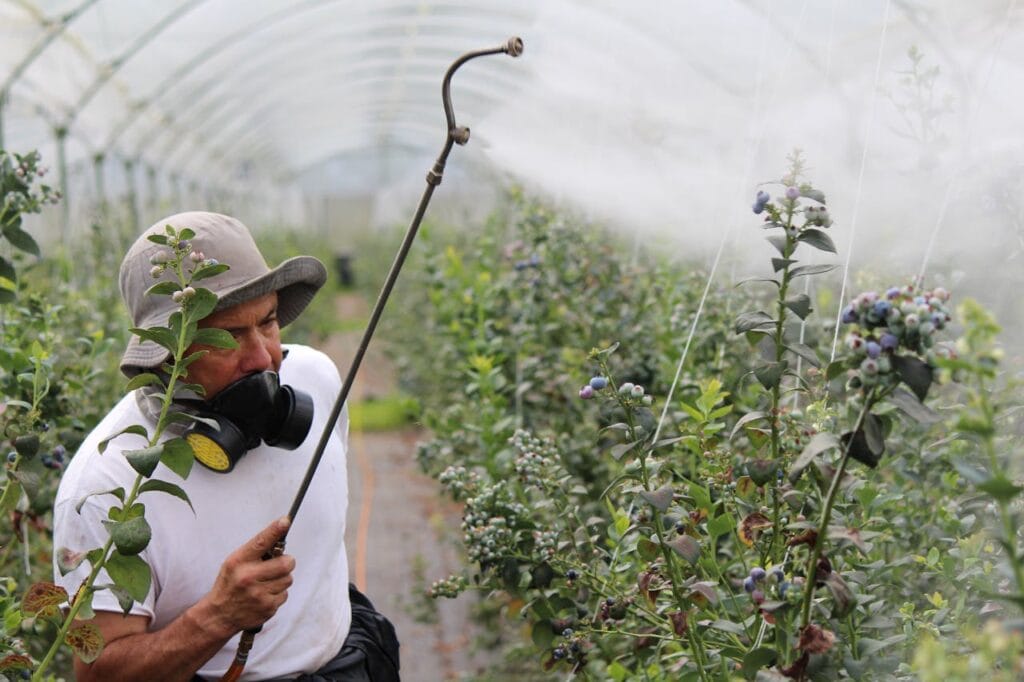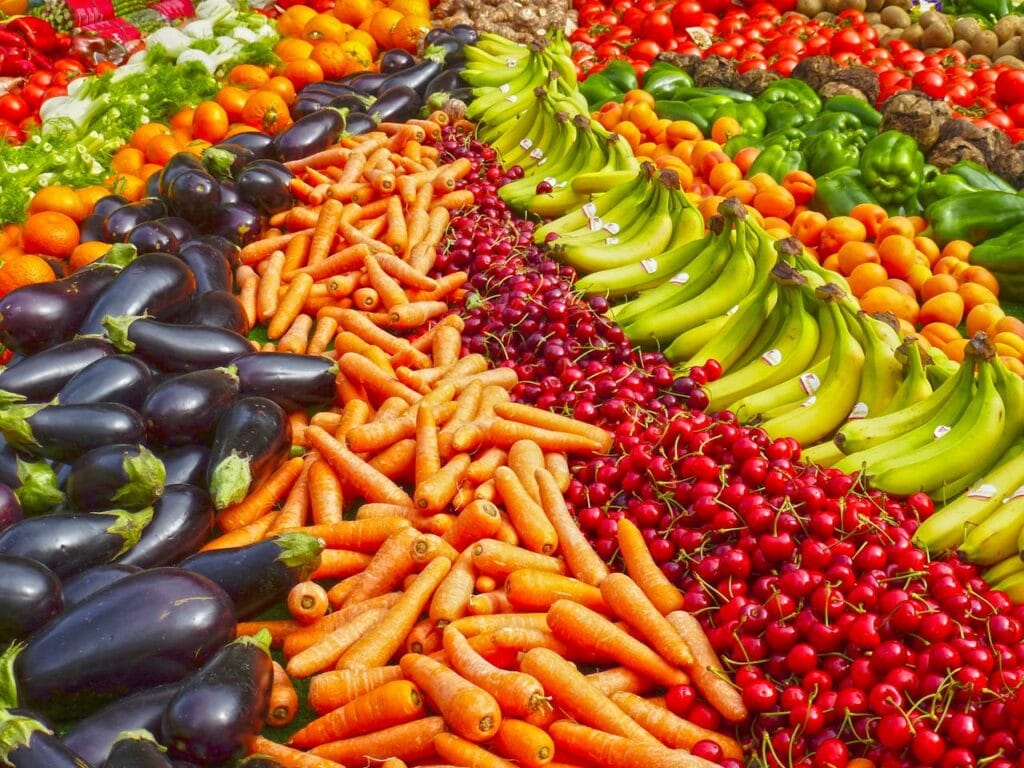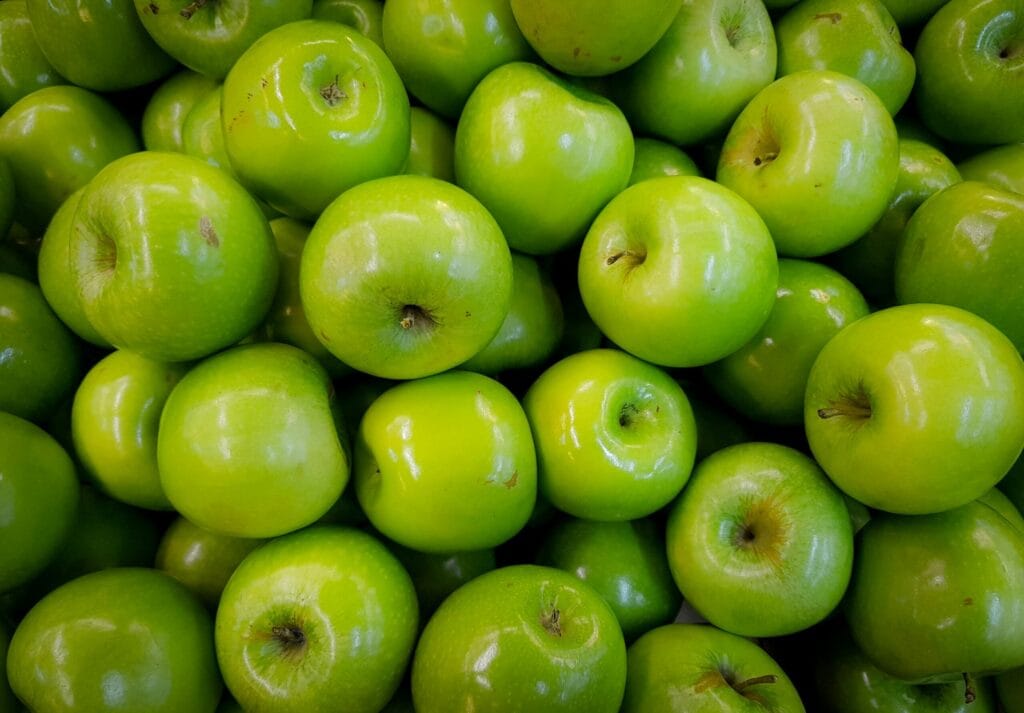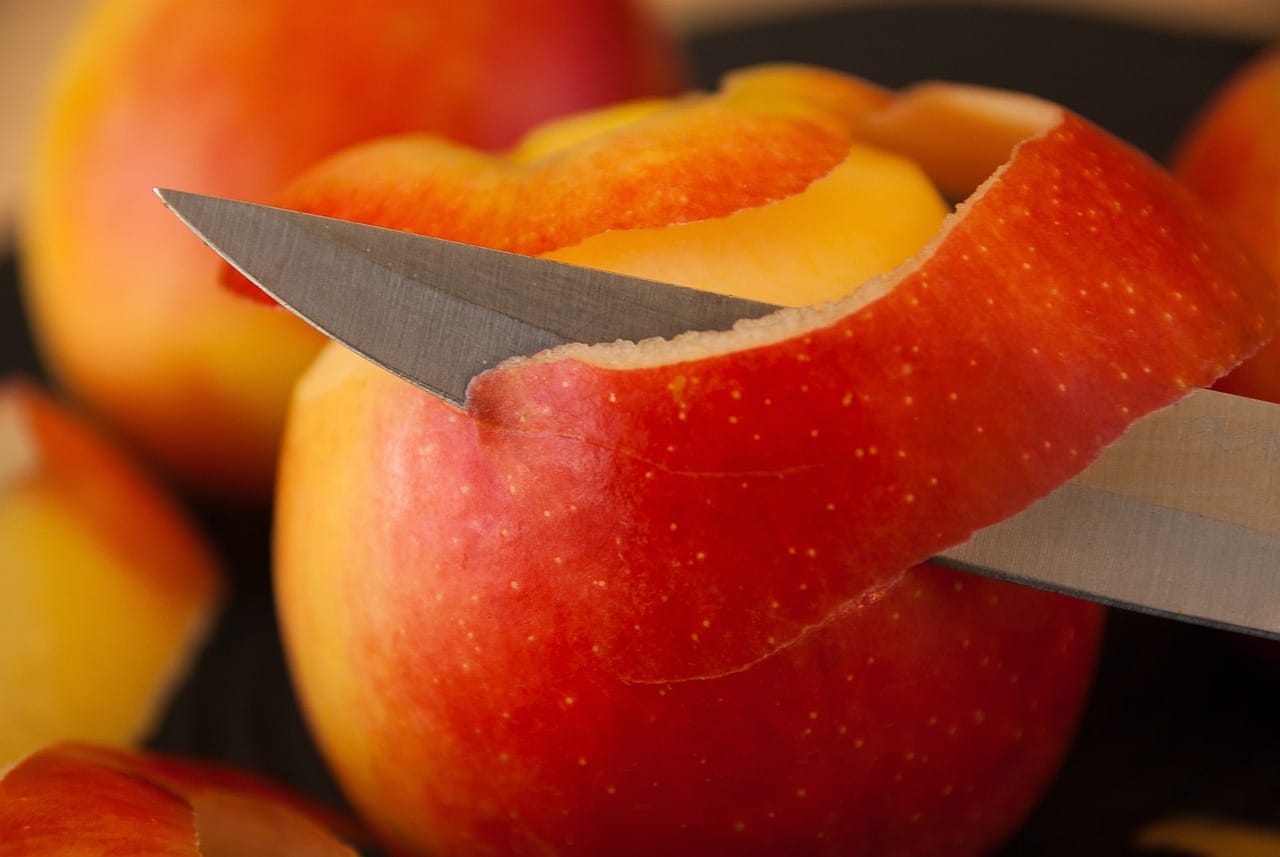There is an opinion that the peel accumulates substances harmful to human health, so it is better to peel it off before eating the fruit. We decided to check whether there are grounds for such fears.
Some media writethat pesticides used during their cultivation can accumulate in the skins of fruits and vegetables. Especially this supposedly concerns fruits from greenhouses. Moreover, as noted in a number of sources, this problem cannot be solved by simply washing, so you can find recommendations cut off the skin thicker or buy so-called organic fruits grown without the use of pesticides. Approved also that the peels of vegetables and fruits may contain paraffin and wax that are harmful to the human body, which after harvesting are applied to some fruits to preserve their presentation for a longer period of time, as well as various pathogenic microbes.
The peel of the fruit itself is often even more usefulthan pulp. For example, the peel of apples, cucumbers, kiwi and oranges contains more vitamins, although the latter two fruits are not usually eaten with the peel because of its specific taste and texture. In addition, it is the hard peel that contains most of the fiber that is beneficial for the body. Therefore, if a person wants to get as many vitamins and microelements as possible from fruits or vegetables, cutting off the skin is not advisable.
However, the fruit peel may contain not only useful substances, but also traces of nitrates and pesticides. Nitrates - These are nitrogen fertilizers that can significantly increase productivity. In limited quantities, they are not dangerous for the human body (consuming 300–320 mg of nitrates per day is considered absolutely harmless). In addition, they do not accumulate in the body. However, due to the excessive use of fertilizers, large amounts of nitrates can indeed accumulate in fruits, and the consumption of such products can lead to poisoning. This applies primarily to vegetables growing directly in the soil or in contact with it. Specialists notethat there is practically no fear of the presence of a high content of nitrates in the fruits of trees and shrubs.

WITH pesticides everything is somewhat more complicated. This general name combines several groups of chemical plant protection products against pests: insecticides (for insects), fungicides (for fungi), herbicides (for weeds), etc. Today, there are hundreds of pesticides, and new ones are constantly being created as pests adapt to those that have been used for a long time. Of course, in many countries, all pesticides and other products used in agriculture are tested for safety by regulatory authorities before entering the market. However, some experts express concernsthat these tests are not always carried out properly or cannot immediately assess possible long-term effects on a person. In addition, more often than not, several types of pesticides are used on the same plants, so the harmlessness of each of them individually may not guarantee the safety of the fruit that ends up on the counter. WHO experts claimthat human contact with large amounts of pesticides can bring both acute poisoning and long-term negative health consequences, including cancer. However, such concerns are most relevant for agricultural workers who come into direct contact with these substances, and not for consumers, who, in the worst case, receive only residual amounts of pesticides from their food.
The content of nitrates and pesticides in fruits on store shelves is by no means a hypothetical danger. Non-profit organization "Roskachestvo» at the end of 2023, she studied 27 samples of vegetables from Russian producers and found in one of the studied cucumber samples an amount of nitrates exceeding norm. Various pesticides were found in 15 vegetable samples. Since there are hundreds of types and not all of them are clearly regulated by Russian or any foreign laws, in some cases Roskachestvo specialists were unable to determine whether the safe dose was exceeded. However, 12 out of 27 samples were found to be “clean” of pesticides and nitrates, so the fruit, which can be safely eaten with the skin on, is readily available on store shelves. However, it is quite difficult to determine the safety of a fruit or vegetable outside the laboratory.

The problem of fruit contamination with pesticides is relevant not only for Russia. The American non-profit organization Environmental Working Group (EWG), which studies toxic substances in food and drinks, in the same 2023 discoveredthat among more than 46,000 samples of 46 different vegetables and fruits, about 75% contained traces of pesticides. In 2018, the French environmental association Générations Futures studied 52 fruits from local stores and found traces of pesticides on 70% of fruits and 41% of vegetables. Among the record holders for pesticide content in both studies were fresh greens, berries (cherries, strawberries) and grapes - products that are problematic to peel.
To protect yourself, experts advise washing any fruits and vegetables before eating, even if you do not intend to eat the peel (as, for example, in the case of bananas or tangerines). US Food and Drug Administration (FDA) notesthat, in addition to fertilizer or wax residues, the fruits may contain a large number of pathogenic bacteria. Therefore, even if you are going to cut off the peel, it must be clean so that microbes from it will not get onto the pulp. US National Pesticide Information Center (NPIC) too recommends Wash fruits and vegetables thoroughly: hold them under running water in a colander, rub hard-skinned fruits with a brush, and soft-skinned fruits with your fingers. It is better to use soap or dishwashing detergent avoid, as they can be absorbed into the fruit and cause more harm than good. At the same time, NPIC experts clarify that even thorough washing does not guarantee complete removal of all traces of pesticides, so among their recommendations is advice to peel the fruits in cases where this is possible.
It turns out that the consumer has to choose between the potential benefits of vitamins and microelements in the peel and the possible harm from pesticides that may also be contained in it. One solution to this problem may be to choose organic products. "Verified" already wrote that it is not yet possible to speak unequivocally about their advantages over ordinary ones, but when growing such fruits, mineral nitrogen fertilizers and a significant part of synthetic pesticides are actually not used.

Another common concern among consumers is fruits and vegetables covered in wax. Indeed, in stores you can often see shiny, as if covered with an oily film, apples, oranges and peppers. Actually wax is being produced in the same apples in a natural way to protect them from loss of moisture and, as a result, premature drying, as well as from mold and other microorganisms. Commercially grown and harvested fruits undergo cleaning to remove dirt, leaves and chemicals that strip away this natural coating. That is why, for long-term storage, apples and some other fruits are covered with wax again. Theoretically, all food additives, including the compounds used in this procedure, are certified and tested for safety. However, for example biphenyl (or additive E230), which has long been banned in the EU due to its potential carcinogenic and allergic properties, is in Russia contributed blacklisted only in February 2024, although earlier they covered apples. This is another argument in favor of the fact that fruits that may be coated with such compounds should be thoroughly washed before consumption - this way, if not avoided, then at least minimize the chance of potentially harmful substances entering the body.
Thus, if we are talking about vegetables and fruits that have definitely not been exposed to pesticides and other chemicals (for example, from your own summer cottage), you should not peel them, since they contain many useful substances. With fruits purchased in stores or markets, everything is somewhat more complicated. Despite the fact that only certified fertilizers and protective agents in safe quantities should be used in agriculture, various non-profit organizations, when studying fruits, often record excess doses in samples. In addition, due to the wide variety of the same pesticides, it is not always possible to say unequivocally that their effect on the human body has been precisely and well studied. The same applies to the means with which fruits are treated after harvest. Therefore, all fruits, vegetables, berries and herbs (even those collected from your own garden) must be thoroughly washed, and if there is concern that they may contain traces of chemicals, experts recommend peeling them if possible.
Cover photo: pixabay.com
Read on the topic:
- WebMD. Fruit and Veggie Skins You Can Eat
- WHO. Pesticide residues in food
- Is it true that foods labeled “organic” are healthier than conventional foods?
- Is it true that food additives are dangerous to health?
If you find a spelling or grammatical error, please let us know by highlighting the error text and clicking Ctrl+Enter.






